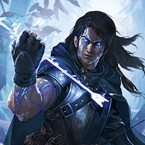I used to frequent fighting games before I came over to the world of collectible cardboard. In that realm, your character meant all. Maybe you played a powerhouse who could tank hits and deliver them back. Or you chose to play a nimble character and dance around your opponent while slowly wearing them down. Rushdown, zoner, whatever your choice - ultimately, your view of the game would be defined by your character.
This is just as true in many card games. Before Flesh and Blood, I was devoted to Star Wars: Destiny, where I aligned with a Jango/Boba Fett deck - my Father and Son deck, if you will. While I wasn’t around to dip into the competitive scene, locally I became known for my style of unexpected, explosive damage from hand.
That playstyle defined how I went into Flesh and Blood. Meaningful on-hits like frostbites and unexpected damage from cards like Rain Razors and Three of a Kind gave me the familiar feeling of my favorite Destiny deck. I natually gravitated toward Lexi.


But like most games, Flesh and Blood has a system in place for rotating cards out of the meta. And now that Living Legend has claimed Lexi, how will I cope?
The Hero's Perspective
What makes a character so important? They are the lens through which you see the game.
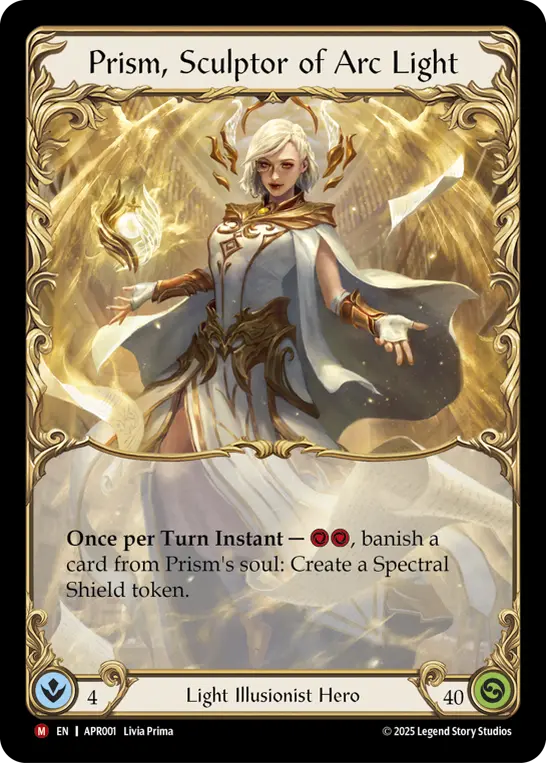
If you've been in the game for a bit, you know a Prism player - or rather, a former Prism player. Personally, I’ve never met a Prism player who adapted to a new hero comfortably. Some have yet to land on a new 'main' hero, switching around from one deck to the next.
Was I, a former Lexi player, going to be like them? An aimless drifter who now felt disassociated? I didn’t feel my time with the game was finished, but I also didn’t know where to go from here.
The unique and exciting piece of Flesh and Blood is that your hero changes the lens by which you see the game. You might have become accustomed to such tropes as Dorinthea players defaulting to their weapon, Rangers managing their arsenals, or Wizards skipping attacks altogether. Some heroes have similarities - Fai and Chane both practice wide strategies - but even in those instances there are adaptations to be considered. In the case of Fai and Chane, the former has less resources and blocking options, while the other utilizes their deck and banish zone to pay for their wide attack patterns. Each hero has varying strategies.
When I fell in love with Lexi, it wasn’t because I could rapid fire a barrage of arrows and suppress my opponent. It was the sequencing of flipping over, playing, and furthermore managing my arsenal correctly. One of my largest blunders was putting a Lightning Press in arsenal (at a sealed Calling, no less) with no way to clear it and a heavy dose of arrows clamoring for that spot! These punishing mis-steps - and eventual knowledge of sequencing - led me to develop into the player I am today.
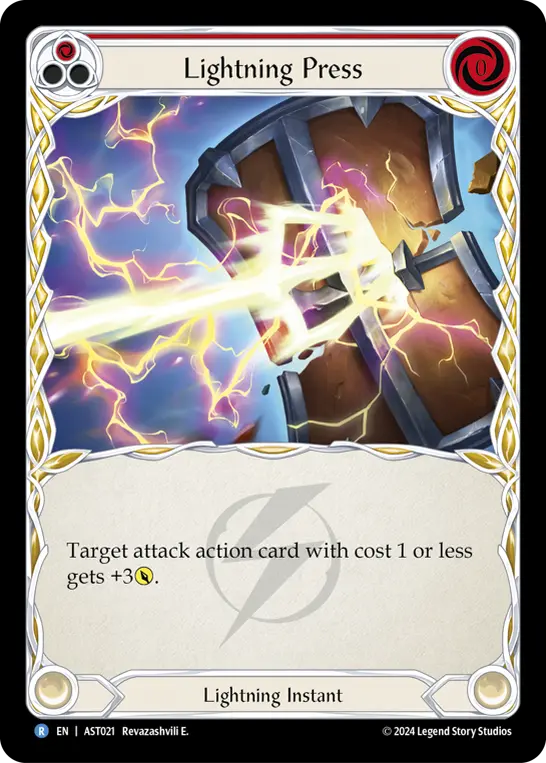
All of this is to say, the skills I developed were largely the result of the hero I chose to pilot. Those skills do transfer, but the value of them is vastly recalculated through the lens of a different deck. When it comes time to look for your next deck, it can be useful to identify the skills you've developed with your current deck.
The Makings of a Hero
Let’s get down to the important part. You wanted to learn how to choose a new hero, right? If we start back at the beginning, we can start to learn about why we chose our first hero - and use that to inform our next choice.
Core-A gaming is an excellent resource I use to learning and developing thoughts about fighting games. I will assure you that most of this information is transferable to Flesh and Blood (and most other card games). They have a video where Gerald specifically speaks to choosing your character. He starts out by citing 3 main reasons why someone picks a character:
Perceived Strength
Playstyle (Son E-Majda)
Character Traits
Character traits are one of the fundamental picks in fighting games, but we can see those play out differently in lore. Recently, Bright Lights was released, and along with it the lore. I can assure you I had different emotions flowing through me regarding characters and their backstories. When I first saw the young version of Maxx spoiled, I had the initial impression that he was a down-to-earth and relaxed mechanic. While that wasn’t something that spoke to me initially, I can recall some of my friends commenting about him. Later, we saw him released as “The Hype” with an adult figure that stood excited and ready to go into action. This over-the-top aesthetic was cool, and I thought he would be a radical character. Then came the lore. I went from seeing him an a mild-mannered mechanic, to an extreme personality, to someone who teeters on the line between good and bad. My opinion of him changed with each step.
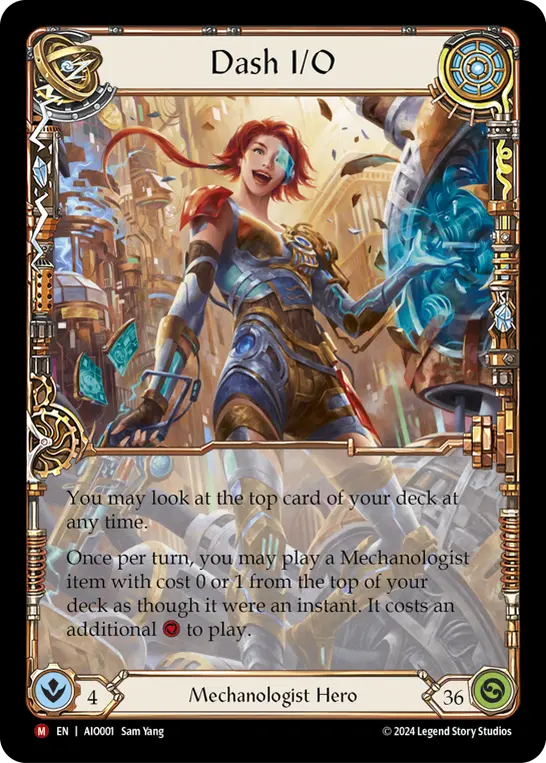
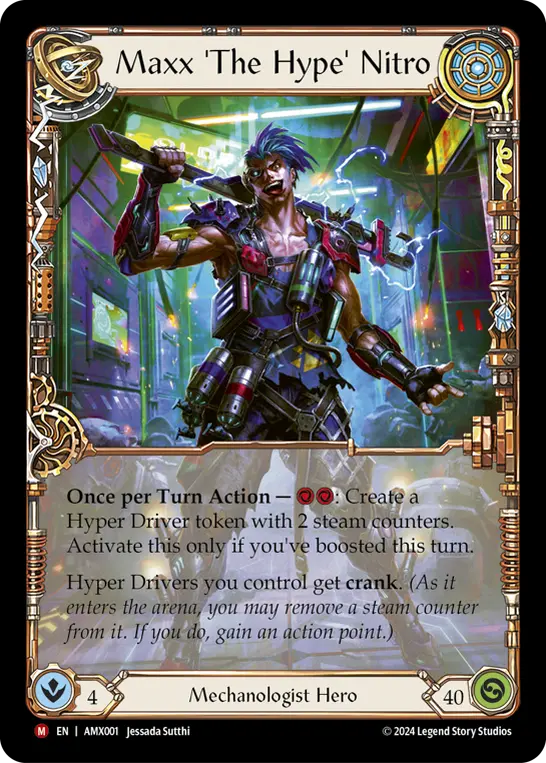
With Dash’s lore, I gained more respect for her. She was someone who saw an issue and looked to fix it, but she sought justice in her own way - much more discretely, and not wanting anything to get hurt. She even asked the Data Doll its feelings before taking any action.
While this is very specific, we find many personalities in the world of Rathe. These vary from loyal soldiers to free spirits and those chasing after their dreams. At this point, you’ve likely made a connection to a character just by their characteristics or attitude.
Gerald cites Son E-Mejda as a Korean term to mean “fit your hands”. While most of us playing cardboard don’t have to commit to pretzel motions or learn the patience of charge attacks, we do have different playstyles. Most of us can identify with a gameplan that suits our personality. Do you want to send several attacks at the opponent? Is one big attack better? Some like playing a control style match and managing the pace of the game. If you like to high roll and gamble a little bit, you may play Brute. Maybe you like to string combos together and make perfect sequences with Katsu. Maybe you just want to play attacks and go Fai. All of the heroes in Flesh and Blood play significantly different, and there is likely a mode for you.
Perceived strength is the interesting piece regarding hero selection. The most competitive players will likely choose a hero they see as the best deck in format. Some will even admit they choose a hero or deck because they believe it has the best chance to win an event at the moment.
There are also players that seek after Boltyn, Levia, and even the new Prism. These heroes aren’t seen as the top of the meta by any means, but players still seek to prove their worth and show what the hero is capable of. We saw a celebratory cheer as Levia made a top 8 at a Battle Hardened event over the summer. Pat Eshghy was able to show her violent potential. We saw Vynnset have success in blitz as Yuanji Li piloted her, showing her devastating power.
While there are decidedly heroes who stand at the front of the meta, we’ve still witnessed just about every hero win a Nationals, and you can see the excitement displayed through various videos on YouTube.
In the end, your perception of a hero's power - or lack of it - can draw you toward them. You know yourself best to know if you're going for the crown or the notoriety.
Is That It?
These three factors seem to be the most conclusive when determining your hero in the game moving forward. Sometimes a player may look at one factor more than the others. What if the choices ahead are in conflict?
But I do think there's another point that Gerald missed. What are your goals? I’m sure they would look different for each person. And depending on your character, short term goals may look different than long term goals. I, like any aspiring competitive player, would love to win the next big event. But more importantly, my goal has been to achieve notoriety with my hero.
Before Lexi was the power that she was, I had several notable achievements on a hero many looked down on as not being very competitive. Even though every set that released changed where she looked on a competitive standing, it didn’t change my goal. Possibly the romance of her initially being the underdog in a set helped me to gravitate toward her and commit to the hero.

So that’s it? We take those 4 traits of playstyle, perceived strength, character traits, and goals and evaluate and pick our hero? Seems simple enough, but there are two more lesser factors I use as well.
The darkside of all of the choices. Meta.
As I'm looking to replace Lexi, I've found that I really enjoy Arakni and Uzuri. The assassin class just seems so meaningful to me; and since I love control decks, this is right up my alley.

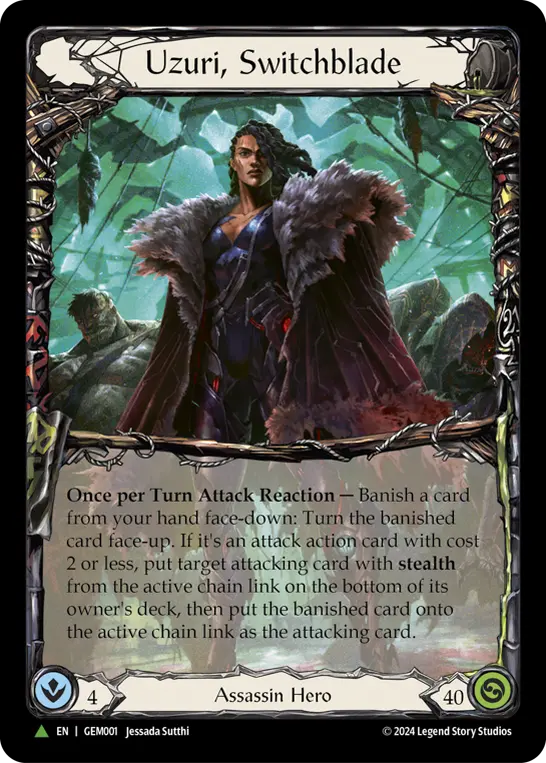
The elephant in the room - or dragon, rather - is Dromai. Dromai is a fun hero, and I don’t think she is currently overpowered. An assassin can beat her, as we have seen happen multiple times before. (Really, we have seen a lot of heroes in the current meta take a W against Dromai.) However, her presence has some implications on the game. She is a hero that relies on board state. In a game where everyone is getting weaker as the game progresses, she is building strength by summoning a board of dragons. Ignore the dragons, and their presence becomes unbearable. Pay too much attention to the dragons, and likely Dromai will be able to overrun you with her full hand of cards.
Certain classes - like Ninja - feel way better into Dromai (or illusionist in general). The average game of Arakni vs Dromai does not feel good at all. If we came into a meta where Dromai players were as plentiful as Lexi players were recently, then that changes what I can have fun playing.
The last consideration is perhaps the most important piece for the puzzle: time. Arakni vs Dromai can feel horrible, but if you are well versed into how to handle that matchup, you can get a leg up by having more prep in this matchup than the opponent. But this isn’t done overnight - it takes time.
This can look differently for different players. Some need a tactile approach, and playing games with others really will tell how the deck will perform. This is likely the best approach, but this will also take time - from you, and from another as you whittle away at the correct combination of deck and experience.
Some players are good at theorycraft, and while this doesn’t work for everyone, thinking about interactions of cards and heroes and the implications of them are important. Some players spend all of their waking moments focused on theorycraft and determining their next step.
Thomas of the recent Calling Dash I/O spoke about “goldfishing”, or running the deck by yourself, to understand how it functions. This can be great for tactile learners who don’t always have time to connect with others.
Regardless of the strategies you use, their effectiveness and your efficacy about the matchups should be a factor into which deck you play. Kano, for example, can be very good. But as a Kano player, you need to understand the inner workings of your deck, your opponent and their capabilities, and how their AB affects our decisions.
The Final Call
The bottom line is that picking a hero isn’t easy. While it’s easy to, say, pick what’s important and the rest will follow, that isn’t exactly the case. In Super Smash Bros Melee (which was really my first foray into any type of competitive play back in the days of high school), I chose to play Sheik. Her quick, low-frame gameplay ended up being a trait I would parallel in any game moving forward. I didn’t pick her because of such, I picked her because she was a Zelda character (literally) and I thought Sheik was cool. Fast forward to modern day, and I pick Cammy in Street Fighter, Giovanna in Guilty Gear, and don’t tell anyone…but I loved Gotenks in Dragon Ball Fighterz.
Although any given fighter in a fighting game has a relatively indefinite life, we still latch onto heroes in the same way when playing card games. Rotations, meta shifts, and new sets all move heroes into and out of contention - sometimes it's a matter of viability, and sometimes it's a forced retirement. It's a hard truth that many players find themselves in positions where they see Flesh and Blood as part of their identity, but don’t currently have a character they identify with.
At the end of the day, some of us want to play the best deck, some of us want to play a hero for a long time to come, and some of us just want to slam cardboard down on the kitchen table. Every player has different motives and reasons for playing the game. Only you can answer who you want to spend your time with, and how your journey in Flesh and Blood will continue.


